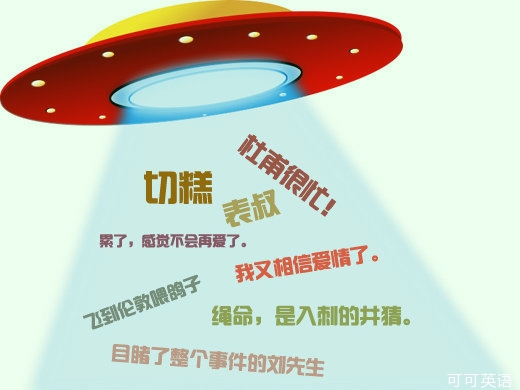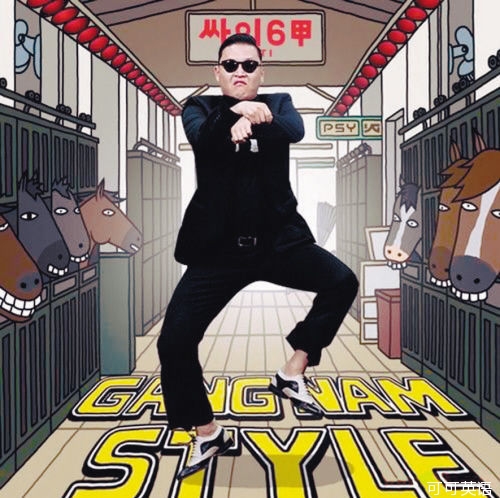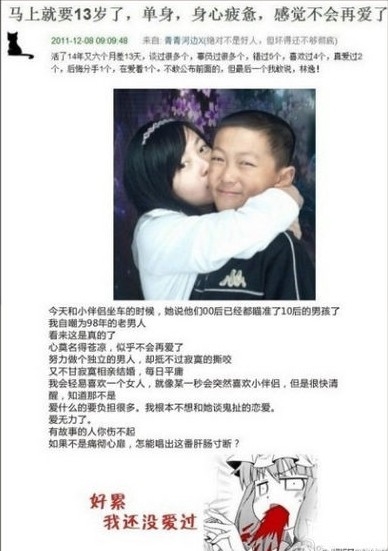
No1. Are you happy with your life?
你幸福吗?
This question may sound mundane. While during the October holiday period, thousands of common people from all walks of life and from literally all places of the country were interviewed by CCTV (Central China Television) reporters the same question, it became the No.1 frequently asked question in China since then. And the truth is varied answers collected by the hard-working reporters are actually way funnier than the question itself. “My surname is Zeng” is generally regarded as the most classic answer for the question. It was made by a migrant worker from west China’s Shanxi province. The trick is the Chinese pronunciation of “Are you happy with your life?” sounds the same with the Chinese question “Is your surname Fu?” So, when being asked by a sincere young reporter of CCTV, the hard-nosed worker corrected, “No, My last name is Zeng.” The whole country applauded the honest worker for his unintentional “humor”.
这个问题看似普通,但在十一假期,中央电视台采访全国成千的各行各业的老百姓,问了他们这个问题之后,这问题就成了中国人民最经常问的问题第一名。勤奋的记者收集来的各式各样的答案比问题本身有趣多了。其中,“我姓曾”被认为是最经典的答复。这是一个来自中国西部陕西省的外来工说的。造成这小幽默是因为“你幸福吗?”的中文发音跟“你姓福吗?”是一样的。所以,当被诚恳的中央电视台的年轻记者问到时,这位注重实际的劳动者赶紧纠正道,“不,我姓曾。”全国人民都为这位诚实劳动者不经意的“幽默”喝彩。
No. 2: Diaos
屌丝
Diaos is thought to be the most talented coinage in 2012, which refers to the group of youth who are not pretty or handsome and don’t have well-paid jobs or rich families to lean on. In one word, Diaos is the under-privileged youth who could only rely on their own talents and hard work for a shabby existence. The phrase is initially coined to set off the other hot word “Gao Shuai Fu” which means “tall, handsome, and rich”. Without a doubt, Diaos means the opposite of “Gao Shuai Fu”. And, once getting out, the funny coinage not only got the attention of mainstream media like People’s Daily and Sina.Com but strike a resonance in the general public who are also self-reliant common people.
“屌丝”被认为2012年最有才的新造词,指的是一群不太漂亮也不太帅的年轻人,他们没有高薪工作或富裕家庭可依靠。总之,屌丝就是在贫困阶层的年轻人,只能依靠自己的才能以及努力工作,卑微地存在着。这词创造原意是为了抗衡意思为“高大、帅气、富有”的热词“高帅富”。毫无疑问,屌丝就是与高富帅相反的词。在出现之际,这有趣的新造词不仅获得了主流媒体如人民日报和新浪网站的注意,同时引起了自力更生的普通大众的共鸣。

No. 3: XX Style
XX风格
Gangnam Style, a hit song by South Korean singer PSY, became a global phenomenon in 2012. Soon, a“style”craze engulfed the cyberspace.People talked about Shanghai style, Diaos style, pre-school style and even the aircraft carrier style (the deck staff of China’s carrier made funny gestures indicating aircrafts to take off, the common public got so amused that they rushed to produce their own editions of the gestures online). Sanxia Zaixian personally holds that maybe Gangnam Style would be gone with the wind soon, but the “style” craze would stay to keep coloring our lives.
江南Style,一只有韩国歌手PSY传唱的热曲,成为了2012年全球现象。不久,一种“Style”体席卷网络。人们纷纷创造起上海Style、屌丝Style、学前Style,甚至出现了航母Style(中国航母上甲板工作人员做出有趣的姿势指引飞行员起飞升降,普通大众觉得很娱乐,纷纷在网络上创造起属于它们个人版本的航母姿势)。“三峡在线”认为,江南Style热潮不久也会散去,不过这种Style体会持续为我们的生活增添色彩。
No.4: Can I spit four-letter words?
我能说脏话吗?
“Can I spit four-letter words?”asked a citizen when requested by a reporter to comment on the ever-rising gasoline prices. After getting a negative reply, the citizen then said, “No? then no comments.” The video clip containing the cool response soon spread on the Internet, and when harsh social realities were being discussed, like a public servant owning twenty houses, people would use the classic reply“Could I speak four-letter words?”to show their indignation.
“我能说脏话吗?”是出自一个记者采访一位市民,问到他有关油价上涨时,市民的回答。在得到否定回应时,那市民又说:“不能吗?那我无话可说了。”这个如此神回复的视频短片瞬间蹿红网络,当讨论到令人不爽的社会现实话题,如一公务员拥有20套房产,人们就会用这个经典答复“我能说脏话吗?”来表示他们的愤怒。
No. 5: I would not believe in love ever again.
我再也不相信爱情了
No one could determine the original source of the remark. But one thing that could be assured is that the remark now is most frequently quoted in reaction to celebrity breakups, which do happen a lot these days.
它的出处已经没有人能确定说出来了,不过在明星分手、离婚这些新闻的评论下面,博友们会看到成批的男女回复“我再也不相信爱情了”来表达自己的悲伤。

No. 6: Tired of it, I’m afraid I would never love anyone again.
累了,感觉不会再爱了
“I feel tired. I think I would not love again.” The ultra-sentimental remark comes from the post of a 13-year-old, and thus shocked tens of thousands of big brothers and sisters online. Later, netizens with a good sense of humor began to use the remark to make “pretentious” sentence to express their exaggerated depression for something or someone. Like, if you got fed with playing World of Warcraft, a hit online game, you could say, “Tired of it, I’m afraid I would not love again.”
“累了。感觉不会再爱了。”这个过分伤感的发言来自一个13孩子的微博,让网络上成千上万的大哥哥大姐姐感到震惊。之后,网民很风趣地开始利用这个言论创造各种“炫耀”的句子来表达他们对某事或某人的夸大的感伤。比如,你对网络游戏魔兽世界感到厌倦了,你可以说:“累了。感觉不会再爱了。”
No. 7: I could not stand it any time.
随时受不了。
This catch remark came from Weibo, China’s version of twitter. A while ago, a micro-blogger nicknamed Korean Miss Cui began to distribute news in the fake name of a North Korean medium. Her humorous remarks like “could not stand it any time,”“report your longitude and latitude” or “take it seriously” began to catch the attention of some celebrity micro-bloggers like real estate tycoon Pan Shiyi and was widely circulated among the netizens.
这个流行语始于微博。不久前,网名为平壤崔小姐的人以“朝鲜媒体”的假名发表了这篇报道。她幽默的言论如“随时受不了”、“报上你的经纬度”、“请注意你的言语”等受到了微博红人如房地产大款潘石屹的注意,迅速走红网络。
No. 8: Positive Energy
正能量
Before you could notice, the word “positive energy”is becoming more than common in the newspapers, periodicals, magazines, books and advocacy slogans. Many bloggers also like to quote the phrase to energize themselves or others. Sanxia Zaixian thinks the overwhelming spread of the phrase indicates the commonly positive mindset of most people and their aspiration and longing for a better world.
在你有所留意之前,“正能量”这个词已经在各大报纸、期刊、杂志、书籍和宣传口号中频繁出现。很多博友都引用这个词来激励自己和他人。三峡在线认为,这个词的压倒性传播指出大多数人的心态是普遍积极向上的,他们也渴望有一个更好的世界。

No. 9: XX of China
中国好××
What’s the most “in” talent show in China? Yes, the answer would definitely be The Voice of China. The TV program is so hot that the brand name also evolved into a life of its own. Now, on the internet, all inspiringly good things are labeled XX of China.
中国今年最火的选秀节目?答案当然是《中国好声音》!这个电视节目超级受欢迎,人们也记住了《中国好声音》这个品牌。现在,网络上,凡是很出色的事物或人物,都被大家冠以“中国好XX”的头衔。

No. 10: Yuanfang, what do you think about it?
元芳,你怎么看?
Yuanfang, what do you think? When the hit question first came out, the man named Yuanfang faced the question over a million times per day on the Internet. If Yuanfang is a real human being, he would either be tired to death or be bored to death. Then who is Yuanfang indeed? He is a character with full name Li Yuanfang from a hit TV show Big Detective Di Renjie, in which, the hero, detective Di would always inquire his deputy Yuanfang for opinions about cases they dealt with. The dialogue would always go like this: “Yuanfang, what do you think of the case?”“Oh, I smelled something fishy.” The monotonous lines were thus joked and copied by netizens to inquire ideas about almost everything, big or small. Like, “Yuanfang, my mother demanded me to wear chill-cool, what do you think?” or “Yuanfang, I believe the Diaoyu islands should belong to China, what do you think?”
元芳,你怎么看?这句话刚火的时候,元芳这个人两日内被人问了200多万次。如果元芳确有此人,看来他不被问死也得被烦死。那实际上,元芳是谁?他来自一个电视节目《神探狄仁杰》里一个叫李元芳的角色。主角狄仁杰在处理案件时,经常会询问元芳的意见。对话是这样的“元芳,你怎么看?”“这其中必有蹊跷。”千篇一律的台词成为网民的笑话,人们事无大小,纷纷借此句询问。例如,“元芳,我妈妈要我穿秋裤,你怎么看?”“元芳,我相信钓鱼岛是属于中国的,你怎么看?”










